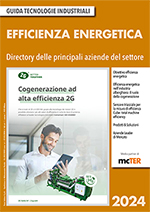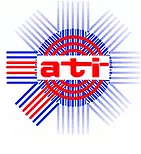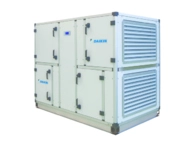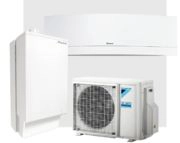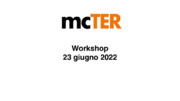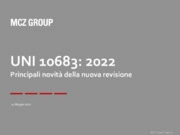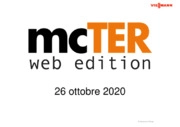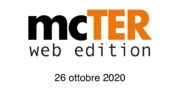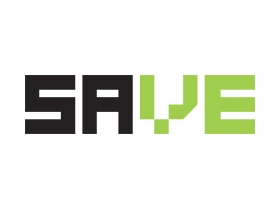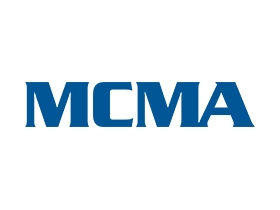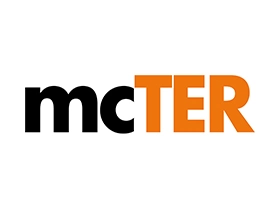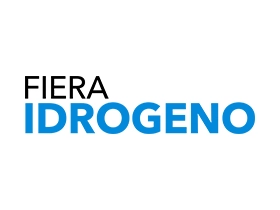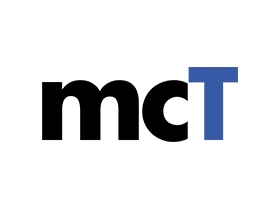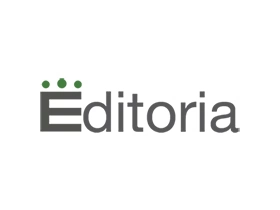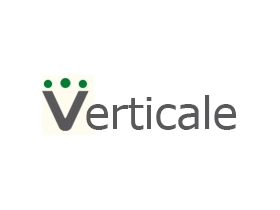Ethical policy for journals and Reviewers
This policy should be read in conjunction with our guidelines for authors and reviewers.
This policy applies to all La Termotecnica Energy Review owned journals and to those journals published with partner organisations that are listed in the appropriate section below.
All corresponding authors are requested to confirm they have read and understand this policy when they submit to our journals.
Unbiased consideration is given to all manuscripts offered for publication regardless of the race, gender, religious belief, ethnicity, citizenship, political philosophy, sexual orientation, age or reputation of the authors.
This policy applies to all La Termotecnica Energy Review owned journals and to those journals published with partner organisations that are listed in the appropriate section below.
All corresponding authors are requested to confirm they have read and understand this policy when they submit to our journals.
Unbiased consideration is given to all manuscripts offered for publication regardless of the race, gender, religious belief, ethnicity, citizenship, political philosophy, sexual orientation, age or reputation of the authors.
We believe everyone is entitled to courtesy, civility and respect.
We commit to treating everyone we work with fairly, professionally and without bias, and we expect our staff to be treated in the same way at all times.
Discrimination against any person will not be tolerated, including, but not limited to, discrimination on the grounds of race, age, gender, location, sexual orientation, disability, appearance, religion / belief, human rights, social / economic status, political philosophy, reputation and/or scientific viewpoint.
In addition, any form of behaviour which La Termotecnica Energy Review considers to be threatening, bullying and/or harassment and/or the cause of another person’s distress or discomfort is unacceptable.
We reserves the right to refuse to interact further with any person whose behaviour it considers has contravened any of the above.
We commit to treating everyone we work with fairly, professionally and without bias, and we expect our staff to be treated in the same way at all times.
Discrimination against any person will not be tolerated, including, but not limited to, discrimination on the grounds of race, age, gender, location, sexual orientation, disability, appearance, religion / belief, human rights, social / economic status, political philosophy, reputation and/or scientific viewpoint.
In addition, any form of behaviour which La Termotecnica Energy Review considers to be threatening, bullying and/or harassment and/or the cause of another person’s distress or discomfort is unacceptable.
We reserves the right to refuse to interact further with any person whose behaviour it considers has contravened any of the above.
We reserves the right to refuse to publish any content that, in its opinion, could be deemed distasteful or illegal including, but not limited to, libellous, defamatory, offensive or hate speech.
All named authors should be able to identify which co-authors worked on specific parts of the work.
In addition, authors should have confidence in the integrity of the contributions of their co-authors.
In addition, authors should have confidence in the integrity of the contributions of their co-authors.
It’s important all authors agree prior to submission the authorship of their paper, the order in which author names are presented, and ensure all those, and only those, who meet this criteria are included as authors.
Acquisition of funding, collection of data or general supervision of the research group does not constitute authorship.
Other individuals who have contributed to the study in a lesser capacity should be acknowledged, subject to their consent to be named (we may not ask you to provide evidence of this, but please keep a copy for your records), but not cited as authors.
Please ensure you declare in the acknowledgments if an individual or organisation has supported with any portions of the work that have been outsourced (such as for translation work, support with experiments etc).
Please note, the acknowledgements should not be used to misleadingly imply a contribution or endorsement by individuals who have not, in fact, been involved with the work or given an endorsement.
We strongly encourage authors to make specific attributions of contribution and responsibility in the acknowledgements of the article.
We understand some research fields follow long standing prescribed authorship practices for recognised ‘big science’ collaborations, which may differ from the above.
Corresponding authors of relevant articles will be asked to confirm upon submission if their paper follows these established practices, and this will be assessed at the journal level according to the accepted practices within that field of study.
Acquisition of funding, collection of data or general supervision of the research group does not constitute authorship.
Other individuals who have contributed to the study in a lesser capacity should be acknowledged, subject to their consent to be named (we may not ask you to provide evidence of this, but please keep a copy for your records), but not cited as authors.
Please ensure you declare in the acknowledgments if an individual or organisation has supported with any portions of the work that have been outsourced (such as for translation work, support with experiments etc).
Please note, the acknowledgements should not be used to misleadingly imply a contribution or endorsement by individuals who have not, in fact, been involved with the work or given an endorsement.
We strongly encourage authors to make specific attributions of contribution and responsibility in the acknowledgements of the article.
We understand some research fields follow long standing prescribed authorship practices for recognised ‘big science’ collaborations, which may differ from the above.
Corresponding authors of relevant articles will be asked to confirm upon submission if their paper follows these established practices, and this will be assessed at the journal level according to the accepted practices within that field of study.
Use of Large Language Models/AI writing tools
AI Chatbots or Large Language Models (LLMs) do not meet the minimum authorship criteria set out by us or many other industry authorship guidelines, Authors using LLMs to assist in generating ideas and/or aiding drafting of the paper should declare this fact and provide full transparency of the LLM used (name, version, model, source) within the paper they are submitting.
This is in line we recommendation to acknowledge any writing assistance.
Use of an LLM should be properly documented in the Methods section (and if a Methods section is not available, in the acknowledgment section of the manuscript.
Authors using these tools to create any part of their work are requested to check for accuracy and are reminded that they, as named authors on the work, take full responsibility for the full content of the work.
AI Chatbots or Large Language Models (LLMs) do not meet the minimum authorship criteria set out by us or many other industry authorship guidelines, Authors using LLMs to assist in generating ideas and/or aiding drafting of the paper should declare this fact and provide full transparency of the LLM used (name, version, model, source) within the paper they are submitting.
This is in line we recommendation to acknowledge any writing assistance.
Use of an LLM should be properly documented in the Methods section (and if a Methods section is not available, in the acknowledgment section of the manuscript.
Authors using these tools to create any part of their work are requested to check for accuracy and are reminded that they, as named authors on the work, take full responsibility for the full content of the work.
We considers any attempt to impersonate another person as a serious breach of ethics.
La Termotecnica Energy Review has the right to request proof of identity in cases where identity fraud or impersonation is alleged or suspected.
La Termotecnica Energy Review has the right to request proof of identity in cases where identity fraud or impersonation is alleged or suspected.
It is unethical to submit the same, or essentially the same, article to a second primary research journal whilst it remains under active consideration by another.
It is the corresponding author’s responsibility to ensure the paper is not under consideration by any other journal at the time of submission.
Authors must not fabricate, falsify or misrepresent data or results. They should strive to be objective, unbiased and truthful in all aspects of their work.
Authors must be honest in making claims for the results and conclusions of their research.
Making inflated claims for a project interferes with the objective evaluation of its results and applications, and can lead to an unfair and wasteful distribution of resources.
Making inflated claims for a project interferes with the objective evaluation of its results and applications, and can lead to an unfair and wasteful distribution of resources.
Authors should strive to avoid mistakes in research and exercise due diligence in presenting high quality work for publication.
They should critically assess the likelihood of experimental, methodological and human errors and avoid self-deception and bias. Where possible they should conduct an internal review to assess the validity of their work before publication.
They should critically assess the likelihood of experimental, methodological and human errors and avoid self-deception and bias. Where possible they should conduct an internal review to assess the validity of their work before publication.
It is, of course, recognised that errors will occur from time to time.
When an error is discovered in published or submitted work, the mistake should be admitted and a corrigendum, erratum or retraction should be published.
Corrections should be approved by all authors of the original article unless there is a particular reason why this is not possible.
In these cases any dissent among the authors should be noted in the published correction.
When an error is discovered in published or submitted work, the mistake should be admitted and a corrigendum, erratum or retraction should be published.
Corrections should be approved by all authors of the original article unless there is a particular reason why this is not possible.
In these cases any dissent among the authors should be noted in the published correction.
We does not require the raw data from an experiment to be submitted for publication, although some of our journals do offer the option to supply this data as supplementary information.
However, we expect that all authors follow established best scientific practice and record (and retain) source material of experiments and research results, in an auditable manner that allows for scrutiny and verification by other scientists. Exceptions may be appropriate to preserve privacy or patent protection.
There may also be specific instructions from your funding agency or university.
However, we expect that all authors follow established best scientific practice and record (and retain) source material of experiments and research results, in an auditable manner that allows for scrutiny and verification by other scientists. Exceptions may be appropriate to preserve privacy or patent protection.
There may also be specific instructions from your funding agency or university.
We expects complete and accurate reporting of research to enable readers to fully understand and evaluate the work.
We encourage authors to include information about their research design to further enhance the reproducibility of their research.
We encourage authors to include information about their research design to further enhance the reproducibility of their research.
Many fields of research have established common reporting guidelines.
La Termotecnica Energy Review encourages the use of whichever guidelines are most appropriate to the study, and we encourage peer reviewers to consider and comment on whether the most appropriate guidelines have been followed.
La Termotecnica Energy Review encourages the use of whichever guidelines are most appropriate to the study, and we encourage peer reviewers to consider and comment on whether the most appropriate guidelines have been followed.
We ask authors to carefully consider both the subject matter and provenance of images included in their work before submitting to the journal.
If the submitted images could be potentially offensive to the journal’s readership or violate copyright, we reserves the right to request that authors seek alternative images or other means to express the same results before the final version is published.
If the submitted images could be potentially offensive to the journal’s readership or violate copyright, we reserves the right to request that authors seek alternative images or other means to express the same results before the final version is published.
Researchers should not generally publish or share identifiable individual data collected in the course of research without specific consent from the individual (or their representative).
Double-anonymous submissions
-
In double-anonymous journals please do not add the ethical statement to the manuscript, instead please complete the relevant section on the submission system.
This information is not shared with reviewers and therefore does not need to be anonymised. - If a reviewer feels they need to see an ethical statement, they are advised to contact us to discuss.
We requires all authors to declare any funding they received related to their research.
When you submit your paper, you will be asked to provide information on all funders associated with your work.
When you submit your paper, you will be asked to provide information on all funders associated with your work.
Authors have a responsibility to fully acknowledge the work of others (be it published or unpublished) that is used in their research and to cite publications that have influenced the direction and course of their study.
Information obtained in private correspondence or conversation should only be used with the explicit permission of the individuals involved.
Information obtained whilst providing confidential services, such as refereeing research articles or grant applications, should not be used without permission of the original author.
Information obtained in private correspondence or conversation should only be used with the explicit permission of the individuals involved.
Information obtained whilst providing confidential services, such as refereeing research articles or grant applications, should not be used without permission of the original author.
All sources for the article must be clearly disclosed and permissions obtained from the original authors (and original publishers if they hold the copyright) for any figures or significant extracts that are to be reproduced or quoted.
Collection of such permissions is the responsibility of the authors.
Collection of such permissions is the responsibility of the authors.
References should be helpful to the reader and advance the article, so authors should ensure they are relevant, recent and easy to find.
Authors should ensure that citations add value and are not unfairly bias towards an individual, group or organisation.
Only sources drawn upon in the work should be referenced, and citations should support the points which they reference.
Only sources drawn upon in the work should be referenced, and citations should support the points which they reference.
The practice of including superfluous references to the authors own work, or the works of others, merely to promote and inflate citation scores is unethical.
Submitted articles must be the authors’ own work, expressed in their own words.
Plagiarism constitutes unethical scientific behaviour and is never acceptable.
Plagiarism ranges from the unreferenced use of others’ ideas, to replication (without sufficient attribution or use of quotation marks) of sections of text from other sources, to submission of a complete paper under ‘new’ authorship.
Plagiarism constitutes unethical scientific behaviour and is never acceptable.
Plagiarism ranges from the unreferenced use of others’ ideas, to replication (without sufficient attribution or use of quotation marks) of sections of text from other sources, to submission of a complete paper under ‘new’ authorship.
Duplicate publication is the production of multiple papers with the same, or essentially the same, content by the same authors and is viewed as unacceptable.
Submitted research articles must be novel and original.
Submitted research articles must be novel and original.
In the case of articles that expand upon previously published conference proceedings, or conference write-ups that discuss work already published in an earlier paper, some limited exceptions to this rule may apply.
However, in these cases authors should consult with the journal staff before submission.
In all instances, articles must clearly cite their sources and present some new contribution to the published literature otherwise such articles will be rejected.
However, in these cases authors should consult with the journal staff before submission.
In all instances, articles must clearly cite their sources and present some new contribution to the published literature otherwise such articles will be rejected.
Multiple publications arising from a single research project should be clearly identified as such and the primary publication should be referenced.
Translations and adaptations for different audiences should be clearly identified as such, should acknowledge the original source, and should respect relevant copyright conventions and permission requirements.
If in doubt, authors should seek permission from the original publisher before republishing any work.
Translations and adaptations for different audiences should be clearly identified as such, should acknowledge the original source, and should respect relevant copyright conventions and permission requirements.
If in doubt, authors should seek permission from the original publisher before republishing any work.
Text recycling occurs when authors publish sections of the same text in more than one of their own publications.
Authors should always be clear and cite any re-used text in the manuscript, respecting relevant copyright conventions and permission requirements.
Authors should state in their cover letter if there are sections of the article that have already been published elsewhere.
We acknowledge there are some instances where text recycling may be acceptable, and others where it is unacceptable.
All text recycling will be investigated and considered on an individual basis by our Editors.
Authors should always be clear and cite any re-used text in the manuscript, respecting relevant copyright conventions and permission requirements.
Authors should state in their cover letter if there are sections of the article that have already been published elsewhere.
We acknowledge there are some instances where text recycling may be acceptable, and others where it is unacceptable.
All text recycling will be investigated and considered on an individual basis by our Editors.
It is also unethical to submit the same, or essentially the same, article to a second primary research journal whilst it remains under active consideration by another.
To aid us in detecting any submissions that do not meet the above requirements, we regularly use plagiarism-detection software to screen articles.
All authors and co-authors are required to disclose any potential conflicts of interest when submitting their article.
Any conflicts of interest should be included in an acknowledgements section.
Any conflicts of interest should be included in an acknowledgements section.
Any direct sources of funds (employment, grants, patents, stock ownership, sponsorships etc.) or indirect sources of funds (consulting fees, honoraria, equipment supplies etc.) where the funding organisation stands to gain/lose from the publication of the article or could be seen to have influenced the submitted work.
Examples of personal relationships/academic competitions that should be disclosed:
Any unpaid roles that the authors have that could influence the publication process.
These would include unpaid advisory affiliations and memberships of professional organisations.
These would include unpaid advisory affiliations and memberships of professional organisations.
Any personal relationships/beliefs that could be seen as a conflict should also be disclosed.
This would include having a relative who works for an organisation funding the work.
This would include having a relative who works for an organisation funding the work.
Reviewers
To uphold impartiality, reviewers should consider any potential conflict of interest before agreeing to review and should decline in the following instances:
- You are in direct competition with the authors
- You are a co-worker or collaborator or have a personal relationship with one of the authors
- You are affiliated with the same institution as one of the authors
- You are in a position to exploit the authors’ work (commercially or otherwise)
- You are in a position which prevents you from giving an objective opinion of the work.
Guida Efficienza
Energetica 2024
Settori Hot
- Automazione industriale73
- ESCO129
- Motori201
- Raffinerie30
- Revamping impianti50
Parole chiave Hot
Le news più lette
Gli articoli più letti
- Riccardo Boarelli
- Dario Giacomello
Webinar più visti del mese
- Viessmann Srl
Settori Popolari
- Efficienza energetica industriale6470
- Rinnovabili5392
- Ambiente3536
- Termotecnica industriale3452
- Energia3253
 English
English


